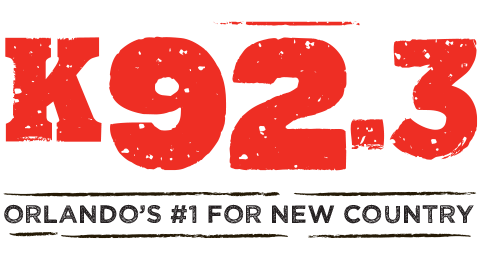The average cost of a new car is hovering close to $50,000 these days, and according to the most recent statistics available, even used vehicles average around $30,000. When it comes time to sign your name on the dotted line for a new car, Edmunds shares all available options. If you're considering whether or not to use a credit card, there are two questions to ask. First: Can you buy a car with a credit card? Second: Should you buy a car with a credit card?
Can You Buy a Car With a Credit Card?
The short answer is … maybe. While pretty much all car dealers accept major credit cards for many transactions, they may have policies that prohibit a buyer from putting the full purchase price of a car on a credit card. The main reason is that credit card companies charge fees to businesses, including car dealerships, that accept them. Those fees typically vary between 1.5% and 3.5%.
If a dealership allows you to buy a new car that costs $50,000 using a credit card, they'd have to pay fees ranging from $750 on the low end to as much as $1,750 on the high end. And that's just for an average car. A 3.5% fee on a $100,000 luxury car or truck comes to $3,500. That money would come straight from the dealership's profit margin.
If you really want to use a credit card for the full purchase price of a car, you might be able to negotiate with the dealership of your choice. Tools like price checkers can rate your dealer price quote to make sure you're getting a reasonable deal. Once a final price is agreed upon, the dealership's sales manager could potentially pass the credit card fee to you as the purchaser. There are laws to regulate the practice of passing fees to customers, and they vary by state.
Regardless of where you live, it's not exactly a common practice for dealerships to pass credit card fees to the buyer, so you shouldn't count on every dealership allowing it. Plus, you'll be adding what could be thousands of dollars to the cost of the car, and it's never a good idea to kick off the car ownership experience far underwater on a loan.
If you can't put the full purchase price of a car on a credit card, a dealership may allow you to charge part of the vehicle's purchase price or the down payment on a card. There isn't really a specific number or percentage you need for a down payment on a car loan, but 20% is a common figure. Choosing to put that amount down on the $50,000 example highlighted above could mean keeping $10,000 in your pocket or your bank account—at the expense of your credit card balance.
It may also be possible to charge service plans or other fees associated with the sale on a credit card instead of rolling those extra costs into the vehicle loan. If any of these credit card options are something you want to consider, make sure you find out if the dealership allows it before you get your heart set on a specific car.
Can You Buy a Used Car With a Credit Card?
Used cars generally cost less than new cars, and lower transaction prices equal lower fees that a dealership would have to pay if they allowed you to buy a car with a credit card. So again, it may be possible to negotiate a deal with a dealership that includes using a credit card for the purchase price of a used car, but it's not a sure thing. And, just as is the case with a new car, the dealership may ask you to pay a credit card transaction fee that could run into the thousands.
Should You Buy a Car With a Credit Card?
Anytime you use a credit card for a purchase, you need to consider the terms and conditions, particularly the interest rate. According to the Consumer Financial Protection Bureau, average credit card rates in 2024 spiked and hit record-level highs early in the year. Rates have dropped a bit since then, but they are still averaging over 20%.
If you were to put $25,000—which is below average for a used car—on a credit card with an interest rate of 20%, paying it off in monthly chunks of $1,000 would take 32 months and would cost you about $7,000 in interest. That means your total outlay would be $32,000 for the car once all the costs are added up. If you were to pay less per month, or worse yet, just make the bare minimum payment, you'd end up paying a lot more in the long run. Cut the payment in half to around $500 per month and you'd be paying the balance off for what could be close to a decade, and you'd pay in excess of $27,000 just in interest—more than the actual purchase price of the car you chose to buy.
More traditional automobile financing programs also have interest rates to consider. Your individual credit score will factor into the rate you'll be offered whether you finance through a lender or put the balance on a credit card. Generally speaking, rates for new or used car loans are much lower than for credit cards. The average car loan rate for a new vehicle was just under 7% as 2024 came to a close. For used cars, the rate was right at 11%. Remember, it pays to do your research, check with multiple dealerships and banks, and most importantly, choose a car that you can afford.
One more thing to consider: Financing a car directly through the dealership may give you access to incentives from the vehicle's manufacturer that you won't qualify for if you use alternative financing options. Some incentives can save you thousands of dollars off the cost of a new car.
Can You Buy a Car With a Credit Card to Get Points?
If you have the ability to pay the purchase price off quickly and have access to the right cards, there are several reasons why it may seem like a good idea to put the full purchase price of a car on a credit card. Many credit cards come with rewards that accrue as the card is used. Putting a purchase as sizable as an automobile on such a credit card could result in a large reward of points, airline miles, or cash back. Some credit card companies also offer low or even 0% interest rates for a set period of time. If you were to pay off the card balance before the promotional period is over, you could potentially save a lot of money by avoiding interest entirely.
Even when you have a card with rewards, there are potential drawbacks to consider that will require you to read plenty of fine print. Credit cards with attractive rewards programs may come with a yearly fee. And if you're eyeing a card with a low promotional interest rate, you'd better be sure you can pay the entire purchase price off before the low rate ends, or else you're going to be met with what's likely to be a sky-high post-promotion rate. Buying a car with a credit card and a strong promotion attached is a risky but potentially rewarding proposition for financially savvy shoppers. Make sure to do all your research before choosing the car and swiping your card.
What Could Happen to Your Credit Rating if You Buy a Car With a Credit Card?
There are still some cautions you need to consider if you've found a dealership that will accept a credit card (for either a portion of or for the full purchase price of a car) and you've weighed the risk and have decided the rewards outweigh the potential drawbacks.
Credit cards have credit limits. This is the maximum amount that the credit card company will allow you to charge on a credit card, and if your limit is too low, you'll have to contact the company that issued the card to find out if it will raise your limit in order for you to make a large purchase. Putting such a hefty sum on a credit card can also have an effect on your credit score due to what's known as your credit utilization rate. According to Experian, this is the percentage of available credit you're currently using, and a high utilization rate is likely to ding your credit score until you pay off the offending card.
How to Avoid the Downsides of Buying a Car With a Credit Card
For those with the means to do so, it's hard to argue against paying for a car with cash. But that's simply not an option for a large portion of the population. The most common way to buy a car is to apply for a traditional loan either through a reputable bank or directly through the dealership. Use a tool like an auto loan calculator to calculate your monthly payment, being sure to include sales tax, down payment, and trade-in options in order to get the most accurate estimate.
If your goal is to cut down your monthly payment, one option is to consider leasing. Some of the best lease deals are coupled with reasonable down payments, but make sure you understand the terms of the lease, including how many miles you can drive each year, before choosing to go down this path.
If you have bad or no credit, you may need to get a cosigner for your automobile loan. You should always strive to make your car payment on time, no matter what method you choose to finance or pay for your car. Doing so will help you build up your credit rating, giving you more options when it comes time to go shopping for your next automobile a few years down the line.






